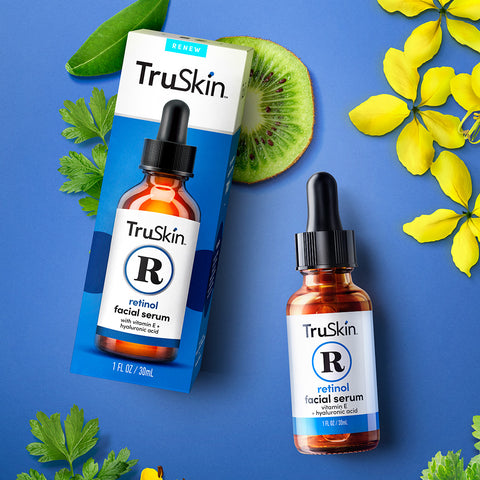
The 5 Greatest Ways To Preserve Your Skin’s Collagen
Collagen is a pretty big deal. So you must do everything you can to preserve it.
When it comes to the look, feel and overall health of your skin, collagen is everything. Literally, everything. It makes your skin stronger, smoother, more supple and most importantly, it wards off premature fine lines and wrinkles. But, of course, as skin ages, your levels of this important protein fade dramatically, and that’s when the visible signs of aging are likely to start creeping up on you.
The bad news is that you can’t do anything to stop the sands of time. But the good news – because there’s always some good news in there – is that there are many other ways to ensure your collagen doesn’t leave town sooner than necessary. Because it’s not just natural aging that screws up your supplies…
First A Quick Refresher: What Is Collagen?
Collagen is the most abundant protein in the human body. As far as your skin is concerned, research shows that it makes up a massive 70-80 percent of its entire structure, working hard to maintain strength, firmness and elasticity. As the clock ticks, however, your skin’s level of collagen starts to dramatically drop off at a rate of around 1 percent every year. Granted, that might not sound like a lot, but believe us, it becomes noticeable very quickly – especially if it starts in your mid-twenties, which is a real probability (gasp!).
So, Why Does Collagen Fade As You Get Older?
Biology for one thing; collagen loss is simply part of the natural aging process.
But that’s not all. Your lifestyle habits, diet, stress levels, sleep routine and the environment in which you live also play their part in how quickly (or slowly) your collagen degrades. And that’s where you come in…
5 Ways To Keep Help Preserve Your Collagen
1. Never Forget To Wear Sunscreen
OK, let’s start with the most important thing of all, shall we? Sunscreen. As the solution to most aging skin woes, a good quality daily sunscreen is every dermatologist’s and facialist’s number one choice for safeguarding good quality collagen. Full disclosure, it won’t magically make new collagen appear or even kick existing production up a notch. But what it does is far more important, and that’s to preserve the collagen you already have by reducing damage caused by the biggest collagen killer of all – the sun.
Why does the sun get such a bad rap? Because, frankly, it deserves it. UV radiation is the number one cause of external skin aging because it causes an influx of free radicals that weaken collagen fibers, causing them to break down and dwindle at lightning speeds.
Don’t want that to happen to your precious skin? Then do everything you can to stop UV from doing its worst by protecting your skin with a broad-spectrum sunscreen every day. Try SPF30 Mineral Sunscreen with Vitamin C, it’s totally up for the job and is so lightweight and easy to wear, you won’t even notice that extra step in your morning skincare routine.
2. Take A Collagen Supplement
If you want to help feed your body from the inside as well as the outside, consider taking a collagen supplement.
Collagen supplements are powders, pills or drinks that are perfectly safe when ingested as instructed to help promote natural collagen production in the skin. Many of them use animal skin, bones or fish scales though, so if that grosses you out as much as it does us, try our Collagen Boosting Skin Supplement, which says a big fat no to animal-derived collagen. Instead, it’s formulated with vegetarian collagen combined with other skin-loving classics like vitamins C and E, plus biotin, a form of vitamin B known to promote cell growth and repair. Take two capsules every morning for breakfast and see for yourself just how effective they can be...
3. Sign Up To A Collagen-Boosting Diet
One of the most important changes to make to your diet – if you care about supporting and nurturing your collagen, that is – is to shun sugar. Sugar grabs on to collagen (and elastin for that matter) and forms things called advanced glycation end products (AGEs) which break down all those important proteins, making your skin less plump, strong and firm. And that’s when things like sagging skin and wrinkles like to join the party. No. Thank. You. Try to reduce the amount of sugar you consume on a regular basis and your collagen will breathe a literal sigh of relief.
Then there’s all the good stuff you should eat more of to help support collagen production. These include collagen-rich foods like red meat and bone broth plus high-protein foods like fish, poultry, eggs, dairy and beans.
4. Apply Some Powerful Topicals
There are no end of collagen-loving ingredients out there, including vitamin C, glycolic acid and EGCG so rather than go on for hours about every topical skincare ingredient available, we’ll just concentrate on the two front-runners in the quest for quality collagen: peptides and retinol.
Peptides are structurally similar to proteins as they’re both made up of chains of amino acids. And this is good news because their similarity makes them almost unbeatable in their effectiveness at stimulating collagen production. Not only that but they’re very well tolerated by the skin, rarely causing sensitivities or irritation. Bonus points right there. Try our Smoothing Collagen Serum which is packed with vegan collagen peptides.
Then you have the mighty retinol which is total kick-ass – although not without its side effects, especially if it’s not treated with the respect it deserves. More researched than almost any other skincare ingredient available, retinol is proven to not only support collagen production but also to prevent future collagen loss. Yes, it’s that good. We, naturally, love Retinol Facial Serum but if you find it’s too much for your skin, NP, we also have our fabulous Rejuvenating Longevity Serum which contains nature’s gentler alternative to retinol, bakuchiol.
5. Try An In-Office Treatment
If you fancy adding on to a great skincare routine and an awesome diet, there are many professional treatments that can help kick your collagen into high gear. Light therapy, for example, is fantastic, as is microneedling which uses tiny, high speed needles to puncture the skin and create ‘micro’ injuries at the surface. This may sound like a dumb idea, but in actual fact microneedling tricks the skin into believing it needs to repair itself, thus triggering collagen production.
Not so dumb any more, right?
Just remember, these treatments are best left to the professionals so search out board-certified experts near you by asking for recommendations or doing some thorough Googling.













